The Lifecycle of a Novel
It’s that time again.
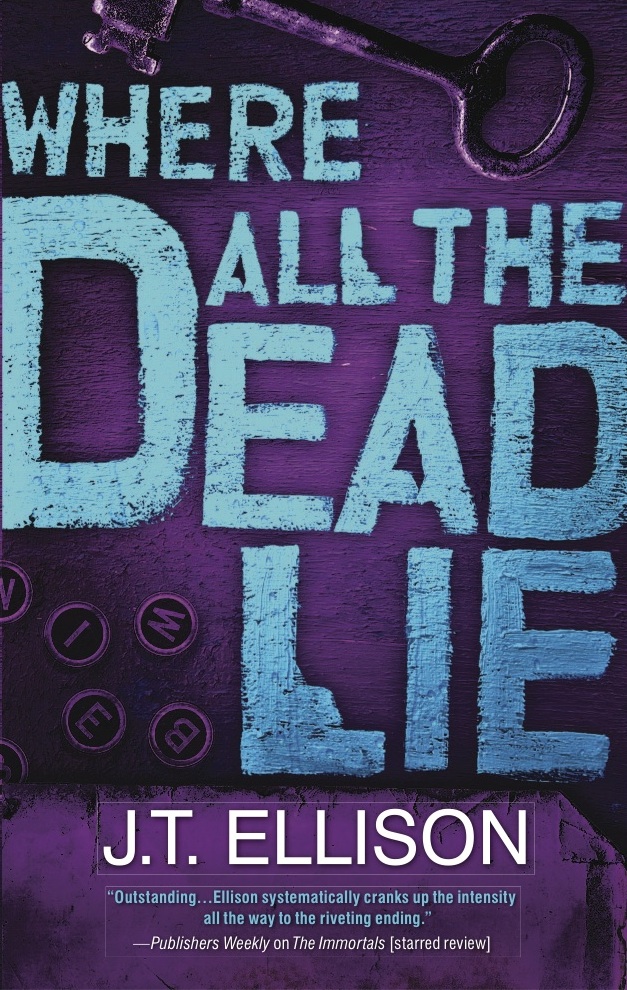 I have a new book out on Tuesday. And since I’m at Bouchercon today, I thought I’d take this moment to share with you the journey I went on writing WHERE ALL THE DEAD LIE.
I have a new book out on Tuesday. And since I’m at Bouchercon today, I thought I’d take this moment to share with you the journey I went on writing WHERE ALL THE DEAD LIE.
(Journey? It was more like a hike up Everest, K9, and Rainier, all in a week.)
I got the idea for WHERE ALL THE DEAD LIE on September 14, 2009, and started writing the book July 23, 2010. It was easier in the beginning. Or so I thought.
But back to the book’s inception. I’d just returned from vacation, and had an unbelievable amount of work on my plate. I was getting ready to shoot the video for the OWN Network, so my thoughts were not exactly on writing as much as what I would wear. I was revising THE COLD ROOM, which was three books ago. I was starting to work on THE IMMORTALS, and slightly fleshing out a concept for SO CLOSE THE HAND OF DEATH. I was not thinking four books from that moment. Not at all. And yet, I was in the car, and heard a song by Tori Amos called “Welcome to England.”
And I saw Taylor stepping off a plane at Heathrow, into the waiting arms of Memphis Highsmythe. You may remember Highsmythe from THE COLD ROOM, the wounded Scottish Viscount who joined the Metropolitan Police of London – New Scotland Yard – a man who in many ways mirrors Taylor – the privileged upbringing, eschewing their parents’ wealth and influence to strike out on their own, a sense on longing, of solitude, even when surrounded by loved ones.
I was curious about why she would do such a thing, but knew I’d have to explore the idea. So I made myself some notes and put the idea away so I could focus on what was at hand.
But ideas like this, so big, so different, wend their way into your psyche. From that moment forward, I was writing toward this book, even though I wasn’t consciously doing so.
When it was time to start working on Dead Lie, I knew much more about the reasons for Taylor’s flight to England.
She’s been grievously injured. She’s not healing. She can’t work. She is deathly afraid of what all of this means.
And most importantly, she can’t talk.
Having a mute protagonist was terrifying for me. Dialogue is a hugely important part of my books, the interplay between Taylor and her team, her lover, the victims of the crimes she investigates – it’s not something I wanted to take from her. But I had to. She had to be forced into a corner and fight her way out. Not fight against a villain, but against herself.
And I wanted it to be more than that. This tale is very much a version of the classic fish out of water, a person set into an environment that is unfamiliar, unsettling. I knew I wanted to set the book in Memphis’s world, London and Scotland, with the Scottish Highlands as the backdrop, at Memphis’s ancestral home. His haunted castle. His Manderley.
Suddenly, I was writing a gothic. In the vein of Du Maurier’s Rebecca. Complete with a questionable housekeeper, an errant friend, a dead first wife, and a serious case of PTSD.
When you’re used to the blistering pace of a serial killer thriller, and the ease of writing a mouthy protagonist, having both those crutches taken away from you is at once both scary and liberating. All the rules I’d followed in the books that came before were thrown out the window. I knew I wanted this to be a stand alone – even seven books in – especially because it’s seven books in. And it’s the first book printed in the trade paperback format – so it’s a chance to reset, if you will.
But well before the marketing decisions were made, I was struggling. The story was unfolding in ways I didn’t like. I kept returning to the proposal I’d written, in June of 2010, trying to find the thread that would lead me through.
The truth was, I was scared.
I’m still a relatively young writer – young as in this was only the eighth novel I’d written. I’d just lost my beloved editor, I was trying a completely new genre, and the resistance I was feeling, all self-imposed, of course, was stifling. As much as I wanted to tell this story, I just didn’t believe in myself. I didn’t think I could do it justice.
On the surface, everything was flowing wonderfully – I took two trips to Scotland for research, both of which were amazing – I highly recommend setting books in other countries so you’re forced to go outside of your comfort zone to make the stories come alive. I loaded the book with the things I’d seen – the setting wasn’t ever the problem. It was the story. Despite my proclamations to have a gothic, I kept trying to sandwich in a serial killer subplot.
While I was in Scotland the first time – the Peter Tobin case broke. Tobin is a Scottish serial killer who killed several women and was sentenced to life in prison. While we were in Scotland, the police connected him to Bible John, a serial killer from the 70s.
Now, the possibilities there were endless. And eerily reminiscent of Nashville’s own Wooded Rapist, who worked across town with a different MO and moniker – the Dome Light Rapist…
So I tried to dump all of that into the book, thinking the straight suspense wasn’t going to work.
I was wrong. The serial killer aspect of the book was terribly distracting. In the end, I cut the whole subplot.
There was a second subplot that disappeared – the story of John Baldwin’s son. Too much information, too little space to have it.
And still the book wasn’t working.
I’ve never walked away from a story before, but I nearly abandoned this manuscript several times. The thing about art is recognizing when something isn’t working, and giving yourself permission to walk away.
But I’m stubborn. And I loved this story. I loved Taylor’s frailty. I loved the backdrop of Scotland. I loved that my incredibly strong heroine was seeing things, hearing things, being driven to the brink of insanity.
And that she had a true attraction to another man.
So I focused all my energy on Taylor and her forbidden relationship with Memphis.
I listened to the feedback form my beta readers, and then wonderful new editor.
I revised and revised and revised.
And two days before I was due to turn it in, the book came to life. After a looooooong conversation with one of my best friends, in which I expressed my desire to toss the book out the window, she said something that made me see all the missing pieces. I rushed through a full revision in two days, and boom, there it was.
You’d think that the more books you write, the easier it gets. The better you get at telling stories. The quicker you can lay down your ideas.
That just isn’t true.
Writers can be incredibly myopic. That’s why we have editors and beta readers and critique groups. It was my tribe that helped me see the forest for the trees in this one. And once I could see that forest, everything was so plain. I just needed to get out of my own way and let Taylor be the star. I’ve always seen her as unassailable. Perfect. Larger than life. In WHERE ALL THE DEAD LIE, she is flawed. Physically and emotionally flawed. Weak, even.
And so much more interesting for it.
And here we are – eight revisions later – with a new baby being born. Makes it all worthwhile, really.
I have a few more stories about the writing of this book on the Tao of JT, plus a contest, so stop by and check things out! Or buy your copy now! Remember to support your indie bookstores too!
Wine of the Week: Ca Veja Nebbiolo d’Alba We had this bold, rich wine last night – it was perfection!
Where All The Dead Lie Trailer from JT Ellison on Vimeo.
Making ends meet or selling my soul?
By PD Martin
Like many writers (especially these days) unfortunately I’ve had to take on extra work to supplement my income 🙁 The reality is, getting money fast means putting creative projects on the back-burner.
For about three years I was lucky enough to only write (well, write and look after my baby and then toddler!). But I only had two balls in the air — writing crime fiction and motherhood. This was quite an achievement, especially in Australia where the average author makes $10,000 a year.
Around book 3 in the Sophie Anderson series, I was interested in trying something different. I wrote the first three chapters of two completely different books and pitched them to my agent. But Sophie was doing well and I was convinced to focus on Sophie. The big break was just around the corner.
And then everything went to **** (insert preferred expletive). Sales of book 4 weren’t quite as good as the first three books. My US agent and both my US and Aussie publishers were a little perplexed. The reviews were excellent and my editors loved Sophie, so why weren’t the sales on the up and up? When book 5 was a similar story it was official…my sales had “levelled off”. No one seemed to know why Sophie hadn’t taken off like they’d expected, but she hadn’t. We started thinking of other options. I talked to my agent about a new series and the two manuscripts I’d started a couple of years earlier came out of the draw.
Around this time I got an offer of a corporate writing gig one-day a week. It was fairly short term (six months) and the hourly rate was incredibly good. In fact, my husband asked me what I estimated my hourly rate would be on one of my books – and trust me, that’s not something you want to think about! So I took the job and decided to take six months off my own writing.
Once the six months were up, I decided to work on the action thriller I’d started years earlier. I made revisions to the proposal and first three chapters before sending it through to my agent. I waited, with that terrible mix of fear and excitement that all authors feel when someone is reading their work.
Three weeks went by and I hadn’t heard back. I thought it was strange but was about to go on a 10-day holiday and decided I’d follow up when I got back. But while I was away I got an email to say that my agent had passed away. I had only met her a couple of times but she seemed like an incredibly strong woman. I thought she’d been in her fifties, but she was in her sixties.
For a while there was uncertainty over what the agency would do and I certainly wasn’t going to hound her husband (who’d taken over the agency even while grieving) or the one assistant. But eventually I had to make the phone call. The agency was still in flux and after chatting to the assistant I decided, given I was starting a new series anyway, it would be a good time to move to another agency.
That was November last year. I queried a few agents and got interest but no offers of representation. One agent suggested that in the current economic climate I might have to finish the book rather than getting an agent and deal on the first three chapters alone. My past sales track record was good, but not great.
I took her advice and wrote like a demon (is that an expression in the US??). By the end of March this year I had completed my action thriller. I started the submission process again, only targeting ‘top-tier’ agencies. Again, I got interest and compliments on my writing but no offer of representation. It seemed action thrillers were mid-list books unless the author was already established – or perhaps if it was such a phenomenally new take on the genre that it was mind-blowing. But mine was/is a well-written (so I’ve been told), darker-styled classic action thriller.
In the meantime, finances were getting very tight and I had to take freelance writing gigs to make ends meet. At times I felt/feel like I’m selling my soul when I’m writing corporate pieces, but at other times I feel like I’m just doing what needs to be done to make ends meet. And let’s face it, I’m extremely lucky. I’ve been doing freelance work (from home, around my daughter’s pre-school classes and activities) and some of the content has been extremely interesting. I haven’t had to put my little girl in day care and go in for a 9-5 (more like 8-6) job. And I’ve actually been writing – just not my stuff. Remember this golden oldie? Don’t know what the Disney version is about…
So, what have I been doing?
For the first half of this year I taught a writing class at Victorian Writers Centre. It was fun and also interesting to revisit some of the basics of character, plot, etc. I re-acquainted myself with my writing books (my favourite is Self-editing for Fiction Writers Renni Browne and Dave King) and discovered some new books too (like Donald Maas’s Writing a Breakout Novel).
I started a new project of my own – something completely different again. If this book gets picked up it will take me into an entirely new genre…I might even get kicked off Murderati! My only problem is I haven’t worked on the book for nearly three months now because I’ve been too busy with the corporate work. Catch 22. Need the money to write, but when I get the jobs I don’t have the time to write!
Anyway, back to my eclectic mix…I’ve got two ghost writing jobs on the go. One book is called Death in a Cult and it looks at a young boy whose death was ruled suicide but there are still questions. I’ve been commissioned by the boy’s grandmother to write the story and she’ll self-publish if the book doesn’t get picked up by a publisher. The other ghost writing job is for a book that looks at the different ways women process information and behave when it comes to finances. Some interesting psychological stuff in there! The proposal and first four chapters are currently with a couple of agents. So, that’s two balls in the air.
In the past two weeks I’ve written a website for financial services companies and a couple of brochures. Couple more balls in the air, and why not add a couple more… I’ve also been commissioned to write four presentations in the next couple of months.
I hope to finish Death in a Cult in the next four weeks and then move back on to my drama book (in between the presentations, the women’s finance book if that gets picked up and any other jobs that come my way!). Will I ever be able to get back to my writing?
I can’t get an advance until I get a publishing deal. I can’t get a publishing deal until I have an agent. And I can’t get an agent until I finish the book. Maybe I just need to sleep less.
So, how do you juggle your various roles? Have you got too many balls in the air like me?
Now I’m off to check my lottery ticket. If I don’t respond to comments it’s because I’ve won and I’m out celebrating.
Bouchercon Bound
David Corbett
It’s Wednesday, which means I’m packing my writerly clothing—anything that looks okay wrinkled (jeans, a denim shirt, a Hawaiian shirt–what I wouldn’t give for a decent bowling shirt), a pair of suitably retro spectators, the blue guayabera from Mexico—and getting ready to rise tomorrow morning at 4:00 AM to join my fellow crime-writing heathens as we descend en masse on poor, unsuspecting St. Louis to attend the year’s grand event for crime writers: Bouchercon.
As Captain William Lewis gaily quipped when happening upon the same territory after Thomas Jefferson’s unconstitutional Louisiana Purchase:
“These are the vilest miscreants of the savage race, and must ever remain the pirates of the Missouri, until such measures are pursued, by our government, as will make them feel a dependence on it…”
Sadly, only a handful of the Murderati Mob will be there: Alafair, Alexandra, JT, Zoë, and Jonathan. But a great many other first-rate writers and fans and assorted publishing wonks and weasels and wonderful joes are migrating in, and I’m on two great panels with a number of folks I admire, as well as a few writers who are new to me and whom I’m incredibly jazzed to meet.
The first panel (Friday, 1:00 PM) is titled SHADOWS RISING—Movies for the crime fiction fan, and we will try to come up with a canon of must-see films for the crime buff. It will include a stellar group: Megan Abbott, Russel McLean, Todd Ritter, Wallace Stroby, with Crimespree’s Jeremy Lynch moderating.
Trust me: This panel is going to be an unqualified kick in the pants.
We’ve divvied up the history of crime film into five time periods:
Classics (Pre-1945)
Cold War Crime (1946-1965)
Revolution (1965-1980)
Reaction: Reagan, Glasnost and the Tech Boom (1980s & 1990s)
The Reign of Terror (2000 to present)
And added a final category titled:
Sacred Cow We Would Love to Gore
Each of us gets to propose three films from each time period and one sacred cow, and we’ll slug it out as to who has the savviest take on cinematic crime. It’s not as easy as it sounds. I’ve suffered over my choices, and agonized over the ones that didn’t make the cut.
I don’t want to give anything by away blurting out here the films I’ve chosen but let’s just say I intend to be the panel’s contrarian. Unless Stroby beats me to it.
But here’s a sampling of the films that made my final cut:
Classics (Pre-1945)
Double Indemnity Fury M
La Bete Humaine Scarlet Street Woman in the Window
Laura Phantom Lady
Cold War Crime (1946-1965)
Rififi Le Samourai Try and Get Me!
Asphalt Jungle Out of the Past Force of Evil
Il Bidone Night and the City Sweet Smell of Success
Pickup on South Street Nightmare Alley Odds Against Tomorrow
Revolution (1965-1980)
Chinatown Mickey One The Killing of a Chinese Bookie
The Godfather Bonnie & Clyde Taxi Driver
The Clockmaker Coup de Torchon Mean Streets
King of Marvin Gardens Dog Day Afternoon
The Friends of Eddie Coyle
Reaction: Reagan, Glasnost and the Tech Boom (1980s & 1990s)
Donnie Brasco The Grifters After Dark, My Sweet
Mona Lisa Bellman & True The Long Good Friday
Glengarry Glen Ross Garde à Vue Following
Lisboa LA Confidential Reservoir Dogs
Pulp Fiction True Romance Jackie Brown
Out of Sight The Limey Drugstore Cowboy
The Color of Money Prizzi’s Honor
The Reign of Terror (2000 to present)
Mesrine, Parts 1 & 2 Red Riding Trilogy Memento
El Aura Amores Perros The Secret in their Eyes
Sexy Beast Animal Kingdom The Town
The Prophet Traffic In Bruges
Oldboy Infernal Affairs Zift
Sacred Cow I Would Most Like to Gore:
Inception Rear Window Maltese Falcon North by Northwest
Whew! See what I mean? Hard work. Now—I need a nap and a bowl of Wheaties.
The second panel (Saturday, 1:00 PM) is titled WITNESS TO AN INCIDENT—The Human Element, and will focus on the role of human witnesses—not forensics or other techy whoop-de-doo—in both the real world and crime fiction. And the panel features some of the most impressive bios it’s ever been my privilege to be humbled by, belonging to: Deborah Crombie, Clea Koff, Taylor Stevens and Amanda Kyle Williams, with Meg Gardiner serving as moderator.
The keen observer will have noticed that all of the panelists are women, with the sole exception of you know who. Fear not, brave brothers: I fully intend to hold my own. (Wait—not quite sure I worded that as well as I might have…)
I know Deborah, having met her at the Book Passage Mystery Conference a few years back, where we became fast friends. She’s not just a brilliant, best selling writer with an international audience, she’s one of the most charming, generous, sweet-natured human beings you will ever meet. (If only all Texans were the same.)
Clea Koff likes to pretend she’s nervous to be the “newbie” on this panel—afterall, the only thing she’s accomplished in life is getting chosen by the UN International Criminal Tribunal to join a crack team of scientists to go to Rwanda to unearth physical evidence of crimes against humanity. Oh, and she was twenty-three at the time. Her book, The Bone Woman, recounts her experience in Rwanda and also additional work she did in the Balkans on behalf of the UN. (I know. What a lightweight.)
Taylor Stephens is another slacker whose bio is an utter yawn. She grew up in an apocalyptic cult, begging on city streets from Zurich to Tokyo, culminating in four years spent in East and West-Central Africa—the primary setting for her critically acclaimed first novel The Informationist.
Important note: The woman who will be appearing on the panel is Taylor Stevens, the author:
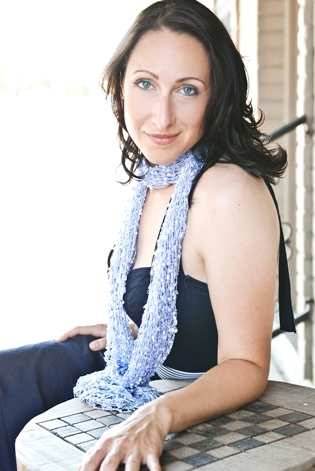
Not Taylor Stephens, the porn star:

If this news comes as a disappointment, my guess is you’re not much of a reader.
Amanda Kyle Williams also likes to play the neophyte debutante, claiming she’s just happy to be on a panel with such experienced old hands—despite having written for the Atlanta Journal-Constitution, and working as both a private investigator and a court-appointed process server.
Oh, and who gets to corral this herd of cats? Meg Gardiner, another underachiever—Stanford Law grad, Edgar winner, author of nine novels.
What a pack of wannabes.
Seriously: I can only imagine what the visual experience will be for the audience, looking up at four smart, witty, accomplished and attractive women—and wondering who invited Uncle Fester.
If you’re coming to Bouchercon, make sure to come up and introduce yourself. If not, stay tuned. I’m sure one or more of the Murderati Poohbahs will be letting you know right here how it all panned out.
So, Murderateros: What films would you pick as the best in each of the time periods I and my fellow Shadow panelists have designated? What sacred cow crime film would you most like to gore?
What would you like to ask my world-wise partners-in-crime on the Witness to an Incident panel? (I’ll try to sneak them in, if Meg will let me.)
*****
Jukebox Heroes of the Week: Well, Bouchercon is one big unabashed bash, more or less, so why not have a party anthem—say the theme from Psycho Beach Party, by the one and only Los Straightjackets:
PARTAY!
Things That Make You Go “Hmmm …”
Louise Ure
Last week Gar wrote about Dumb-Ass Titles (DAT) and Kick-Ass Titles (KAT). His premise was that Dumb-Ass Titles must fall into all three of the following categories:
- They are one word
- That word is in ubiquitous use
- They are predictable.
By and large, I agree with him on that definition. In fact, I would add two more criteria to that (as I think Gar did in his discussion points). For me, the authors don’t have to commit all five of these sins at the same time; any one of them would turn me away.
Any title that relies on a pun
I already have my handy all-purpose apology towel out to wave at all the writers whose publishers forced you into cutesy, punning titles as a way to suggest a lighthearted tone in your work. I feel your pain. But it probably worked with most folks.
Any series titles that must subscribe to a series inclusion (alphabet, numbers, elements, the same noun)
I’m looking at you here, Barry Eisler. “Rain Fall,” “Rain Storm,” “Hard Rain”? God, I couldn’t tell you which one I read even after I finished it. I know I bought one book three times. (Hmmm… maybe that’s what the publisher had in mind, after all.)
Later in the post, Gar went on to describe a Kick-Ass Title as one that draws the reader in, but does not rely on any secret or double meaning.
That’s where we part company.
My definition of a Kick-Ass Title is one that:
- Has an unexpected joining of previously unrelated words
- Has a secret or double meaning
- Makes me go, “Hmmm, I wonder what that’s about?”
An unexpected joining of previously unrelated words:
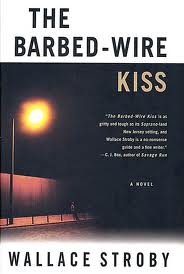
The poster child for these titles is Wallace Stroby’s previously mentioned, “The Barbed-Wire Kiss.” Are there two words in the English language that belong together less? And could there possibly be any other two words you’d like to find out more about? Hats off, Mr. Stroby.
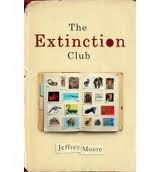
Jeffrey Moore’s “The Extinction Club” falls into that category for me, too. I’ve got to find out more about a book with that title.
As do Barbara Kingsolver’s “The Poisonwood Bible, ” and David Liss’s’s “The Ethical Assassin.” The key is the conjoining of a usually negative word with a usually positive one: barbed-wire, extinction, poison and assassin versus kiss, club, bible and ethical.
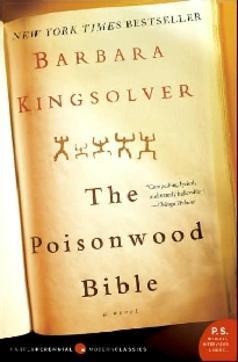
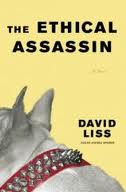
I’d use the example of “Slap Happy,” but together those words have their own connotation. Which brings me to another kind of favorite titles:
Titles with secret or double meanings:
I’ve been warned against these in my own work, but I absolutely adore them, for myself and other writers. “The Fault Tree” is, of course, a literal tree in my book, but is also the engineering term for a diagram to look back at how the failure of a project took place. I like having both of those images in the title.
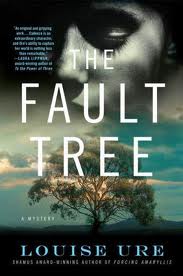
It’s the linguist side of me that makes me love titles like Duane Swierczynski’s “Expiration Date,” Louise Penny’s “Still Life,” and Christa Fausts’s “Money Shot.” Sure, they’re common phrases, but in the high stakes world of crime fiction, they convey so very much more. Gar might fault those titles for being “ubiquitous” but I think the added frisson of the double meaning makes them truly KATs. (I wonder if “Greenwich Mean Time” would fall into the same category? Or “Past Imperfect”? They sound like good titles, maybe not KAT, but leaning that way.)
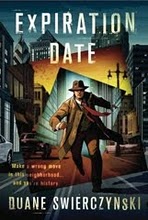
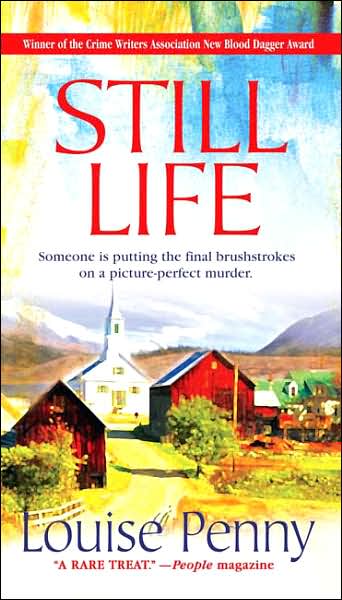
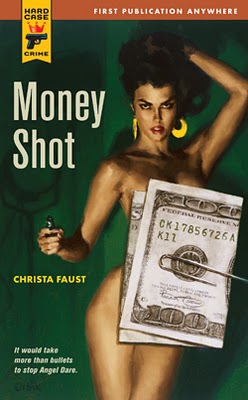
Michael Connelly’s “The Lincoln Lawyer” plays on the double meaning of Lincoln, but also falls into my final category of Kick Ass Titles:
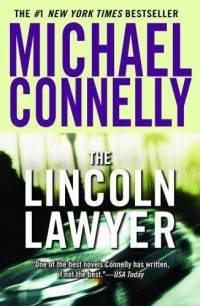
Titles that make me go “Hmmm… I wonder what that’s about?”
This is probably the largest collection of books in my house, because, after all, these are the books that got me interested enough in finding out more that I took them off the shelf in the bookstore. And in truth, isn’t that all a title is truly supposed to do?
I give you Toni McGee Causey’s “Bobby Faye’s Very, Very, Very, Very Bad Day.”
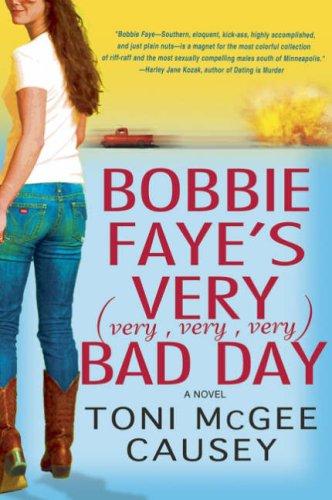
Anything by James Lee Burke:
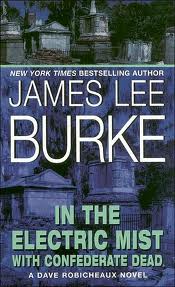
John Irving’s “A Prayer for Owen Meany.”
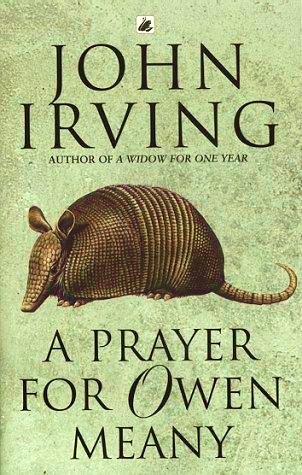
And, as much as I hate to say it, “The Girl With the Dragon Tattoo.”
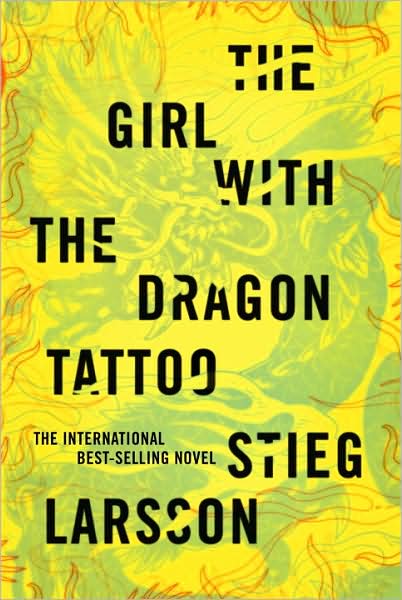
With titles like these, I will never be bored in a bookstore. I will be yanking these things off the shelf like they were AA batteries in blackout, sure to keep my interest piqued for another 400 pages.
My own new collection of potential titles includes the following, many of which would probably land on Gar’s DAT list. Alas, that’s just the way I’m drawn.
- Valley of the Handless Men
- The Last Place you Look
- A Silver Bullet for Miss Kahlil
- Punish the Monkey (and Let the Organ Grinder Go)
- Flotsam at the Dog Star Café
So, whatcha’ think? And which kick-ass titles come to mind for you guys under this expanded definition added to Gar’s post? Any titles you’d love to see written?
Rewriting v. Editing
I just finished a book.
I’ve been in a position to use that glorious sentence eight times. The first seven times, I spoke the sentence immediately after typing the final period on the final page. I even typed THE END to mark the moment.
Did that mean I was completely done with my work on the book? Of course not. My agent and editor needed to read it. I would listen to their good feedback. I would make changes, some of them big. The book would be better for it. And then we’d do another pass. And then copyediting. But that’s all editing. The book was “finished,” as I use that word.
Book eight? I typed an ending a month ago, but, for the first time, I didn’t type THE END. I didn’t say, “I just finished a book.” Instead, I paused a moment to celebrate having a beginning, middle, and an end. I may even have had a drink or two.
One of each, please!
Then I opened a new, blank document on my computer and started again from the beginning.

Yep, I rewrote my book.
Now, a month later, I’m willing to say I finished. I even typed THE END. The celebratory drinks made those first ones look like amateur hour.
Having to reach an ending twice before typing THE END got me to thinking about what made this time different.
1. Why wasn’t the first ending the finish line?
At a spotlight interview during last year’s Bouchercon, Gregg Hurwitz asked Michael Connelly if he had any publishing regrets. After initially saying no, Michael backed up and said he wished he had submitted his first novel earlier. It was done, but he kept tinkering and refining on his own for nearly three years.
Little did he know as an unpublished writer that the book would get even better with an editor. By Michael’s calculation, if he’d sent the book out earlier, he would have benefitted from an editor’s feedback sooner, and he could have started his second book instead of working on his own for all that time. The world might have an additional Connelly novel or two as a result.
His observation made me think about my own process. I don’t generally tinker and refine on my own. I type THE END and send it away. But I’ve been able to do that because I force myself to get it right — or at least my own best version of right — the very first time. I nitpick at myself constantly during the first (and only) draft.
For this book, I decided to let all that go. I made myself write, even when I knew a certain scene or a certain plot twist wasn’t exactly right. It’s not a process I would have been comfortable with seven books ago, but I’ve learned by now that that finishing sooner is better than finishing later. I’ve seen for myself — seven previous times — how much better a book can be once you finish that first pass of editing. Plus I heard Michael Connelly say it, so it must be true!
But changing my objective from finishing my very best draft to simply finishing a draft necessarily changed how I felt about “finishing.” All I could say was that I had a beginning, middle, and an end. I couldn’t really say I had finished the book. I couldn’t type THE END.
2. Why I Called it a Re-Write
In my previous seven edits, I made some pretty big changes. But I made those changes directly to the document. I cut and pasted if I switched the order of two scenes. I added chapters. I deleted entire pages. Overall, however, the narrative arc of the plot and characters remained intact.
This time, I decided that an “edit” — even a big edit — would not suffice. I wanted to start with a blank document. I wanted to revisit every decision I had made the first time around. I would reimagine the book with more information than I had all those months ago. I’d pull over scenes, character, words, sentences, paragraphs, and entire chapters only as helpful. I’d skip the rest. I’d write new scenes and characters as I went.
Two characters completely left the page. One arrived a hundred and fifty pages earlier. An affair that happened suddenly didn’t.
When I reached the ending of this new book, I knew it was better. I knew I was proud of it. And I knew I was actually done.
I’m not certain I’d recommend this process to anyone else. The messiness of it has me wishing once again that I could outline a book chapter by chapter, scene for scene, prior to writing. But at least I’m able to say that I have finished my eighth book and am very happy with it.
THE END
To my fellow writers: Do you rewrite or merely edit? To the readers: Do you enjoy hearing how the sausage is made, or should writers make it look easier than it sometimes is?
How Many Times Can I Not Give the Same Speech?
I’m in Colorado for the Rocky Mountain Fiction Writers “Colorado Gold” conference. This is new experience for me. I’ve spoken to thriller/mystery writers and romance writers, but never a multi-genre “fiction” writers group.
I presented my “No Plotters Allowed” workshop, which I always like to give. As I tell the audience at the beginning, they really only need to take one thing from the workshop: There is no one right way to write, but there is a right way for you. I created the workshop years ago (before my first book came out) because I was tired of well-meaning people telling me I had to do this or that (write an outline, create a GMC chart, use the snowflake method, know my theme, identify the black moment–what the hell is the black moment? Yes, that’s a rhetorical question. Sort of.) So I devised the workshop originally with my pal Patti Berg to give people permission to write the way they want that moves them forward. It’s the right way if you’re making progress; it’s the wrong way if you aren’t. Simple.
And then I go off on a hundred tangents and hope people have lots of questions. I love questions 🙂
I haven’t attended any other workshops because I have a book due in three weeks and need to write every day, so have been putting in 4 hours a day writing, netting 6500 words in two days. I tend to write more when I’m NOT at home–which is why I go to Starbucks when I’m stuck or when I’m close to deadline and need to increase my writing pace. Fewer distractions.
Now, it’s Saturday night (because I never get my blog done early) and I’m in my hotel room after listening to an AMAZING keynote speech by Bernard Cornwell, who writes historical fiction. Maybe because he has a British accent, or maybe because he’s just a great speaker and hilarious to boot, I’m a bit panicked. I’m speaking tomorrow at the luncheon. I can not compete with his performance or wit, and I have no accent to hide behind.
I’d planned on giving the speech I haven’t given to three different conferences. I wrote it for the New Jersey Romance Writers in 2009, and got derailed after three pages. I then attempted it at the Moonlight & Magnolia’s conference in 2010–but I had cut it down and (nearly) got through the whole thing before I went off on a story. So I attempted it again at the Dreaming in Dallas conference earlier this year … and don’t think I got through more than the opening.
This would have been my fourth attempt.
But I’m thinking maybe the speech just isn’t worth telling. So now, instead of going down and drinking in the hospitality suite, I’m taking the speech apart and trying to find the good parts and write something around them. Maybe it’s just because I’ve read it so many times that I’m finding it boring. Or maybe because I just listened to a funny and poignant speech that was both inspiring even as he told everyone not to become a writer.
And then I wonder, why do I agree to do these things?
Truth is, I enjoy conferences and presenting workshops. The speeches, not so much, but I get through it. And I’ll do it this time. Even if I end up not giving the speech I write.
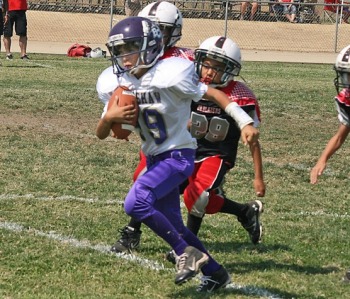 This weekend has been a busy weekend in the Brennan house. I’ve had this Colorado conference on the calendar for nearly a year. Then after school starts, I learn that my oldest has a volleyball tournament in San Diego (and yes, she arrived on Thursday in the midst of the power outage!); my #2 daughter has a cross country retreat in Lake Tahoe; my sons have an away football game; and my youngest daughter has her first soccer game. Fortunately, my mom was able to take care of the soccer game (yeah, grandma!) so my husband could take the boys to the football game. Soccer game: Victory! 7-1. Mighty Mites (6-8 year olds) football game: Victory! Come from behind to win 13-12. Jr. Pee Wees (8-10 yrs): They lost BUT my son, #49, caught his first pass in a game. A 20 yard throw, and he ran an additional five yards before being tackled. I’m sorry I missed the catch (but not sorry I missed him being tackled!)
This weekend has been a busy weekend in the Brennan house. I’ve had this Colorado conference on the calendar for nearly a year. Then after school starts, I learn that my oldest has a volleyball tournament in San Diego (and yes, she arrived on Thursday in the midst of the power outage!); my #2 daughter has a cross country retreat in Lake Tahoe; my sons have an away football game; and my youngest daughter has her first soccer game. Fortunately, my mom was able to take care of the soccer game (yeah, grandma!) so my husband could take the boys to the football game. Soccer game: Victory! 7-1. Mighty Mites (6-8 year olds) football game: Victory! Come from behind to win 13-12. Jr. Pee Wees (8-10 yrs): They lost BUT my son, #49, caught his first pass in a game. A 20 yard throw, and he ran an additional five yards before being tackled. I’m sorry I missed the catch (but not sorry I missed him being tackled!)
And finally, we all know what day it is today. I didn’t want to write a blog summarizing what we all know happened ten years ago, or reliving where we were or what we were doing–but I do want to recognize the amazing men and women who sacrificed so much. Those who died. Those who cleaned up. Those who rebuilt. America is an amazing country, and we truly have amazing people. And even though I may complain about this or that on occasion, there’s no place I would rather live.
I apologize in advance for not being around much of today, what with the speech I’ll be giving and then pre-speech panic attack. But I hope you’ll share a good book you’ve read recently, or a movie that you were surprised you liked. I saw SUPER-8 earlier this summer. I expected it to be ok; I ended up really enjoying it.
It’s Fall – do you know what your next book is?
Fall is my favorite season. Maybe it’s that Halloween thing, maybe it’s the “back to school” energy, maybe it’s the Santa Ana winds that were so much a part of my life growing up in Southern California that I made them a character in The Space Between, maybe it’s just that you get a jolt of ambition because it gets cooler and your brain returns to some functional temperature.
Because it’s sort of ingrained in us (whether we like it or not), that fall is the beginning of a new school year, I think fall is a good time for making resolutions. Like, about that new book you’re going to be writing for the next year or so.
Myself, I have so many books to finish right now that I can’t let myself think about any new ones until I get at least ONE more done. I’ve taken the idea of multitasking to a near-suicidal extreme. But I’m not complaining – not only do I have a job, I have my dream job.
However, given what I blog and teach about, I am aware that this is a perfect time for OTHER people to be thinking about THEIR new books. Because, you know, it’s September, but November will be here before you know it.
I’m sure many if not most here are aware that November is Nanowrimo – National Novel Writing Month. As explained at the official site here, and here and here, the goal of Nanowrimo is to bash through 50,000 words of a novel in a single month.
I could not be more supportive of this idea – it gives focus and a nice juicy competitive edge to an endeavor that can seem completely overwhelming when you’re facing it all on your own. Through peer pressure and the truly national focus on the event, Nanowrimo forces people to commit. It’s easy to get caught up in and carried along by the writing frenzy of tens of thousands – or maybe by now hundreds of thousands – of “Wrimos”. And I’ve met and heard of lots of novelists, like Carrie Ryan (The Forest of Hands and Teeth) Sara Gruen (Water For Elephants), and Lisa Daily (The Dreamgirl Academy) who started novels during Nanowrimo that went on to sell, sometimes sell big.
Nanowrimo works.
But as everyone who reads this blog knows, I’m not a big fan of sitting down and typing Chapter One at the top of a blank screen and seeing what comes out from there. It may be fine – but it may be a disaster, or something even worse than a disaster – an unfinished book. And it doesn’t have to be.
I’m always asked to do Nanowrimo “pep talks”. These are always in the month of November.
That makes no sense to me.
I mean, I’m happy to do it, but mid-November is way too late for that kind of thing. What people should be asking me, and other authors that they ask to do Nano support, is Nano PREP talks.
If you’re going to put a month aside to write 50,000 words, doesn’t it make a little more sense to have worked out the outline, or at least an overall roadmap, before November 1? I am pretty positive that in most cases far more writing, and far more professional writing, would get done in November if Wrimos took the month of October – at LEAST – to really think out some things about their story and characters, and where the whole book is going. It wouldn’t have to be the full-tilt-every-day frenzy that November will be, but even a half hour per day in October, even fifteen minutes a day, thinking about what you really want to be writing would do your potential novel worlds of good.
But you know what? Even if you never look at that prep work again, your brilliant subconscious mind will have been working on it for you for a whole month. (Cause let’s face it – we don’t do this mystical thing called writing all by ourselves, now, do we?).
So here’s my topic for the day, and possibly for my next blog as well:
How do you choose the next book you write?
I know, I know, it chooses you. That’s a good answer, and sometimes it IS the answer, but it’s not the only answer. And let’s face it – just like with, well, men, sometimes the one who chooses you is NOT the one YOU should be choosing. What makes anyone think it’s any different with books?
It’s a huge commitment, to decide on a book to write. That’s a minimum of six months of your life just getting it written, not even factoring in revisions and promotion. You live in that world for a long, long time. Not only that, but if you’re a professional writer, you’re pretty much always going to be having to work on more than one book at a time. You’re writing a minimum of one book while you’re editing another and always doing promotion for a third.
So the book you choose to write is not just going to have to hold your attention for six to twelve months with its world and characters, but it’s going to have to hold your attention while you’re working just as hard on another or two or three other completely different projects at the same time. You’re going to have to want to come back to that book after being on the road touring a completely different book and doing something that is both exhausting and almost antithetical to writing (promotion).
That’s a lot to ask of a story.
So how does that decision process happen?
When on panels or at events, I have been asked, “How do you decide what book you should write?” I have not so facetiously answered: “I write the book that someone writes me a check for.”
That’s maybe a screenwriter thing to say, and I don’t mean that in a good way, but it’s true, isn’t it?
Anything that you aren’t getting a check for you’re going to have to scramble to write, steal time for – it’s just harder. That doesn’t mean it’s not worth doing, or that it doesn’t produce great work, but it’s harder.
As a professional writer, you’re also constricted to a certain degree by your genre, and even more so by your brand. I’m not allowed to turn in a chick lit story, or a flat-out gruesome horrorfest, or probably a spy story, either. Once you’ve published you are a certain commodity.
If you are writing a series, you’re even more restricted. You have a certain amount of freedom about your situation and plot but – you’re going to have to write the same characters, and if your characters live in a certain place, you’re also constricted by place. Now that I’m doing a couple of paranormal series, I am learning that every decision is easier in a way, because so many elements are already defined, but it’s also way more limiting than my standalones and I could see how it would get frustrating.
Input from your agent is key, of course – you are a team and you are shaping your career together. Your agent will steer you away from projects that are in a genre that is glutted, saving you years of work over the years, and s/he will help you make all kinds of big-pitcure decisions.
But what I’m really interested in today is not the restrictions but the limitless possibilities.
How DO you decide what to write?
And even more importantly – How do you decide what to READ?
Because I have a theory that it’s actually the same answer, but we’ll see.
Happy Fall, everyone!
– Alex
SCHWARTZ WELCOMES STONE
I’ll be out of the country for a few weeks and I’ve asked a couple authors to pop in and introduce themselves while I’m gone. Today you’ll meet Eric Stone, and on September 23rd you’ll meet Miles Corwin, author of KIND OF BLUE, HOMICIDE SPECIAL and THE KILLING SEASON.
I’ve known Eric Stone for a number of years now. He’s a genuine nuisance and an all-around Good Guy. He is also the author of the Ray Sharp series of detective thrillers set in Asia and based on true stories that he covered as a journalist: The Living Room of the Dead, Grave Imports, Flight of the Hornbill and Shanghaied (in which he brutally murdered his series protagonist.) He is also the author of Wrong Side of the Wall, the true-crime / sports biography of Blackie Schwamb, the greatest prison baseball player of all time.
He is currently at work on a trilogy of coming of age novels set in Los Angeles during different eras and in different communities.
Eric worked for many years as a journalist in the U.S. and Asia, covering everything from economics to crime; politics to sex, drugs and rock & roll. He once wrote an advice to the lovelorn column for a bi-lingual (English-Chinese) fashion magazine. He currently lives in Los Angeles. You can learn more about Eric at his website, http://www.ericstone.com
WRITING SUCKS, BUT WHAT ELSE AM I GOING TO DO?
A guest blog for Murderati by Eric Stone
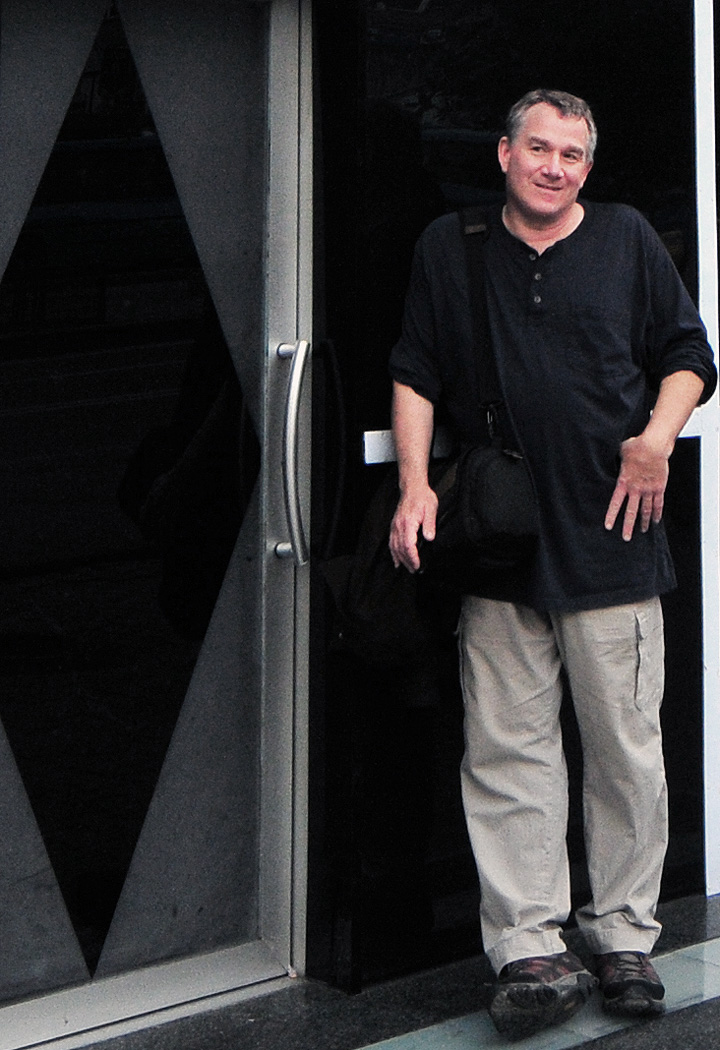
This summer, for the very first time in my life I’ve been having an awful time trying to write. I don’t like anything I write and what little I manage to start loses steam, or slams into brick walls. Thirty years ago I would have been filling the wastepaper bin in my office with reams of paper. Now I’m more environmentally friendly – if you don’t take power plants into account – I just discard pixels.
All the palliatives and advice I’ve received and dispensed to others myself over the years have done no good.
“Inspiration is for amateurs.” Oh, fuck you Chuck Close, you get millions of dollars for one of your damned paintings made up of all those endless tiny self-portraits. You don’t need inspiration, you’ve got your shtick.
“When you face writer’s block, just lower your standards and keep going.” Blow it out your ass Sandra Tsing Loh, I find your Asian Valley-Girl Mom blather on NPR incredibly annoying. Talk about low standards.
“If you don’t think too good, don’t think too much.” You could hit the ball, sure, couldn’t you Ted Williams? But you weren’t much of a fielder. Booze used to be good for sticking to this advice, but as I get older the hangovers get worse and less worth it.
It might help if my latest book would sell. It’s been sitting on about eight editors desks in New York, mostly, since sometime in July. Waiting is murder, slow, torturous murder even when it’s your sixth book.
Maybe this is it, the end. Maybe all I had in me was five books. Most people don’t ever even write one.
But maybe by the time this blog is published – after Labor Day – the publishing industry will have finally left the beach, shaken off the sand, washed off the sunscreen and got back to their offices. Maybe some of them will take pickaxes and shovels to the piles in front of them and finally unearth my manuscript. Most of them will reject it.
Maybe one of them will realize it is the best thing I’ve ever written and the next book will be even better and they’ll buy it. That possibly hallucinatory carrot dangling just out of reach in front of my nose is what keeps me going. That might just prove inspiring. Take that, Chuck Close.
But there are those times when I think, sometimes even know that the smart move would be to simply give up. Who needs the damn carrot anyhow?
Those are the times when I’ll be chewing on a paperclip at my desk, wondering what would happen if I just swallowed it. I’ve never swallowed a paperclip.
Those are the times I can best picture the label on the bottle of good single malt in the next room. Not until five or even six, Eric. Not until you can think up something to reward yourself for or build up enough sorrow to drown.
Those are the times I am taunted by the knowledge that distraction, amusement, companionship and simple gratification are no more than a couple of mouse clicks, a phone call and a couple hundred bucks away.
I guess I’m just too stupid to give up, or to prematurely reach for that bottle or dial for that doll, or to do any of the too many things that I know would be easier than sitting here day after day spewing shit from my fingertips. (Although I might swallow the paperclip one of these days, by mistake if not intention.)
At times I feel like the aging, graying, sagging, verging on heat-stroked mule plodding up the narrow path of the Grand Canyon on a hot day. There’s all that cool, fresh water in the river far below. It glistens so beautifully it beckons, just sidle on over to the edge and lean a little too far and it will all be over soon.
But what can I do? I’m a mule, just another fucking mule. Even I know that the promised carrot is probably an illusion. And it sure as hell isn’t cake. But it’s a carrot and I’m a mule and the only thing I really know is how to keep putting down one hoof in front of the other and maintain just enough balance to keep from stumbling over the cliff.
Every day that I get up and want to do something else, want to get in my car and just drive away, want to go score some good strong dope and turn myself into one of the blissfully, mindless walking dead, I have to flog myself out of it. I have to whip myself with the only one word of real, smart advice that any writer ever gets. It’s the dumbest, most obvious thing anyone can ever tell a writer or a writer can tell themselves, but it’s the only thing that makes any sense in the end. It’s the only thing that any writer who really is a writer can really do anyhow.
Eric, just shut the fuck up and write.

Keeping The Plates Spinning
There’s always talk among writers about the pros and cons of writing a series versus standalone novels and I can see both sides of the argument. There’s a lot of freedom to writing standalones. Any character traits that engage your interest can form the protagonist of your next work.
No baggage, no preconceptions. You can narrate in first person, third person, close third, multiple viewpoints – second person if you feel the urge. Present tense, past tense, a mix of both. Contemporary, historical, futuristic. There seems to be no limits beyond what your publisher will accept and your readers will enjoy. (And reader expectation is a whole different subject . . .)
Of course, there has always been a liking for ‘the same . . . but different’. I was a big fan of the early Dick Francis books, and not just for their horse-orientated content. Although they were mainly standalones with only a few repeated characters, there were definite similarities between the heroes of the Francis books, regardless of whether they were jockeys or bankers, airline pilots or movie stars.
As a reader, you knew what you were getting. And if you liked one, the chances were pretty good that you were going to like them all.
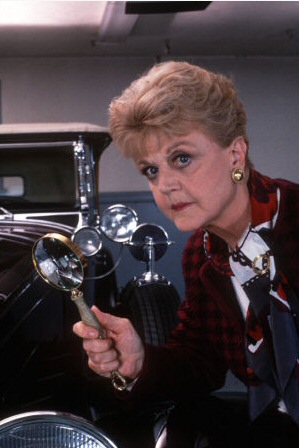 Few of the Francis protags were professionally involved with crime, but he successfully side-stepped the issue of Cabot Cove Syndrome, as it’s known. Anybody familiar with the long-running Jessica Fletcher ‘Murder She Wrote’ TV series will understand this. Every time that woman turned around, she tripped over a body. I mean, nobody in their right minds should ever have accepted an invitation to dine with Ms Fletcher, because you could be certain there’d be one less guest for dessert than for the appetiser. She was a jinx.
Few of the Francis protags were professionally involved with crime, but he successfully side-stepped the issue of Cabot Cove Syndrome, as it’s known. Anybody familiar with the long-running Jessica Fletcher ‘Murder She Wrote’ TV series will understand this. Every time that woman turned around, she tripped over a body. I mean, nobody in their right minds should ever have accepted an invitation to dine with Ms Fletcher, because you could be certain there’d be one less guest for dessert than for the appetiser. She was a jinx.
So, if you want an amateur sleuth to discover the bloodied corpse book after book, at least with a standalone character you aren’t forced to invent yet another reason why someone with an apparently harmless occupation should become such a magnet for murder.
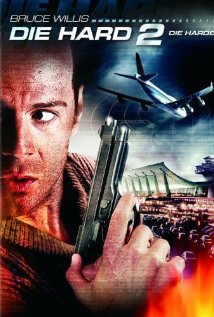 Even professional law enforcement characters may stumble into the credibility issue, though. Just how many serial killers or fiendishly cunning murderers can a small-town police chief chase down in his career? Reminds me of the Bruce Willis line in ‘Die Hard 2’ as he’s battling the bad guys in a stricken airport in the snow: “How can the same sh*t happen to the same guy twice?”
Even professional law enforcement characters may stumble into the credibility issue, though. Just how many serial killers or fiendishly cunning murderers can a small-town police chief chase down in his career? Reminds me of the Bruce Willis line in ‘Die Hard 2’ as he’s battling the bad guys in a stricken airport in the snow: “How can the same sh*t happen to the same guy twice?”
Of course, the standalone writers might argue that the series writers have it easy. Once you’ve hit upon an intriguing main character, you’re halfway there. If people are hooked on your recurring protag, they’re likely to pre-order the next in the series without knowing more than the title.
And this is the reason that publishers, it seems, also rather like series. I wonder how many debut authors have stopped work on a non-related second novel because of hints that another book featuring the same characters as the first would be smiled on rather more favourably.
Then you have the additional question with a series – how inter-related do you make the books? If someone picks up book five, for example, how much are they missing – and how frustrating will they find it – if they haven’t already read books one through four?
Do you keep your main character stuck in a time warp, where they never age, never change, never carry lasting memories of old cases, old love affairs, old enemies? Or do you allow your protag to evolve and develop as the series goes on, taking them on a personal journey through each book that’s as important to returning readers as the individual story arc?
I set out to write Charlie Fox as a series character from the beginning, and I had a reasonable idea of where I was going to take her, from ex-army self-defence instructor, through training and into the world of close protection. Maybe I should have just chucked her straight in at the deep end, and made every client she had to protect a new job without reference to anything that went before.
But I couldn’t do that.
It seemed important to me that the character learn from her past experiences, that they affected her as much as she affected them. People tell me they like Charlie’s ongoing internal battles, her complicated relationship with her former army training instructor, lover, and now boss, Sean Meyer, and her constant struggle to come to terms with her own cold-blooded side.
And this is where I discovered another difficulty with writing a long-running series.
Keeping the plates spinning.

People who are coming to a series cold like to start at the very beginning. My first US publisher picked up the series at book four, FIRST DROP, and then leapfrogged the next one to go straight to book six. Books one, two, three and five were overlooked, causing endless confusion, not to mention frustration.
My original UK publisher was sold out to a larger house and one by one, the early UK books went out of print. All five of them. The only editions still obtainable – apart from Large Print and audiobooks – were snapped up by the collectors, and I have been amazed and even a little horrified (if, I admit, somewhat flattered) by some of the prices being achieved. But this has meant that getting hold of a half-decent reading copy became an exercise out of the reach of most people’s pocket. Mine included.
Not any more.
(And here you must picture me shuffling my feet awkwardly, being British and finding BSP a difficult exercise. Please forgive my excitement, though. Normal service will be resumed next time, I promise.)
For the first time in years, all the early Charlie Fox backlist books are available again – in e-format. It’s taken some blood, sweat and tears – not necessarily in that order – but they’re all out and damn if I’m not proud to have them back on sale. The later books, of course, are available from Allison & Busby in the UK and St Martin’s/Pegasus in the States, with e-versions either out currently or on the way, in the case of FIFTH VICTIM.
(And even those of you who don’t have a Kindle reader device itself, you can download Kindle Reader for PC or Mac absolutely free.)
Until now, it’s felt like one of those TV game shows where hapless volunteers from the audience have to try to keep a load of plates spinning on the end of poles. Just you thought you’d got them all going, the one at the beginning begins to topple.
At last, all my plates are spinning at once.
I know I mentioned the new Charlie Fox e-thology, FOX FIVE last time, and the new edition of the very first book, KILLER INSTINCT, but now these have been joined by RIOT ACT, HARD KNOCKS, FIRST DROP and ROAD KILL. (Although as I write this I’m still waiting for a couple of them to go live on Amazon US, UK, and DE. This brand newness explains part of my ‘kid with new toy’ feeling today – sorry!)
Here are the covers for the series, designed by Jane Hudson at NuDesign. I’m over the moon with the eye-catching look of the series, but see what you think:
As with KILLER INSTINCT, each book has some added extras, like Author’s notes, an introduction to Charlie Fox, an excerpt from the next book in the series, and a guest excerpt.
For these I’ve been lucky enough to hook up with some of my favourite writers. Former ‘Rati Brett Battles allowed me to put an excerpt from his Jonathan Quinn novella, BECOMING QUINN in the first book, and others are: in RIOT ACT, Timothy Hallinan’s second Junior Bender novel, LITTLE ELVISES; in HARD KNOCKS, Libby Fischer Hellmann’s PI Georgia Davis/Ellie Foreman novel, DOUBLEBACK; in FIRST DROP, Blake Crouch’s ‘what if’ thriller, RUN; and finally in ROAD KILL, Lee Goldberg’s new standalone, KING CITY.
I can’t tell you how thrilled I am to have been able to join forces with these very talented writers, who are also including excerpts from the Charlie Fox books in their latest work. Let’s hope this cross-pollination opens up our novels to a wider audience.
And finally, I was invited to join a new outfit called The Hardboiled Collective, by Jochem Vandersteen of the Sons of Spade blogsite. This is just a group of – well, the clue is in the name, and I hope you’ll check out some of the great writers who are members. We even have a terrific group logo, courtesy of Jane Hudson again:

OK, that’s it, I’m going to stop going ‘me, me, ME’ now. I promise to calm down and stop stuffing myself with Sunny Delight and blue Smarties and go lie down in a darkened room for a bit.
My questions this week, though, are do you feel that you HAVE to start reading a series right from the start, or are you happy to dive in wherever the fancy takes you? And if you used to read a series but have stopped, what made you do so?
Next weekend I shall be attending Bouchercon 2011 in St Louis MO, and am hugely looking forward to going – more so as I’ve missed out on the last couple. Please say “Hi” if you’re going. On the way, I’m doing an event at Lisle Library in Chicago IL. Can’t wait!
Finally, this week’s Word of the Week is paedometer, a device that can be strapped to the arm while out exercising to show you how many perverts are in the immediate vicinity . . .
